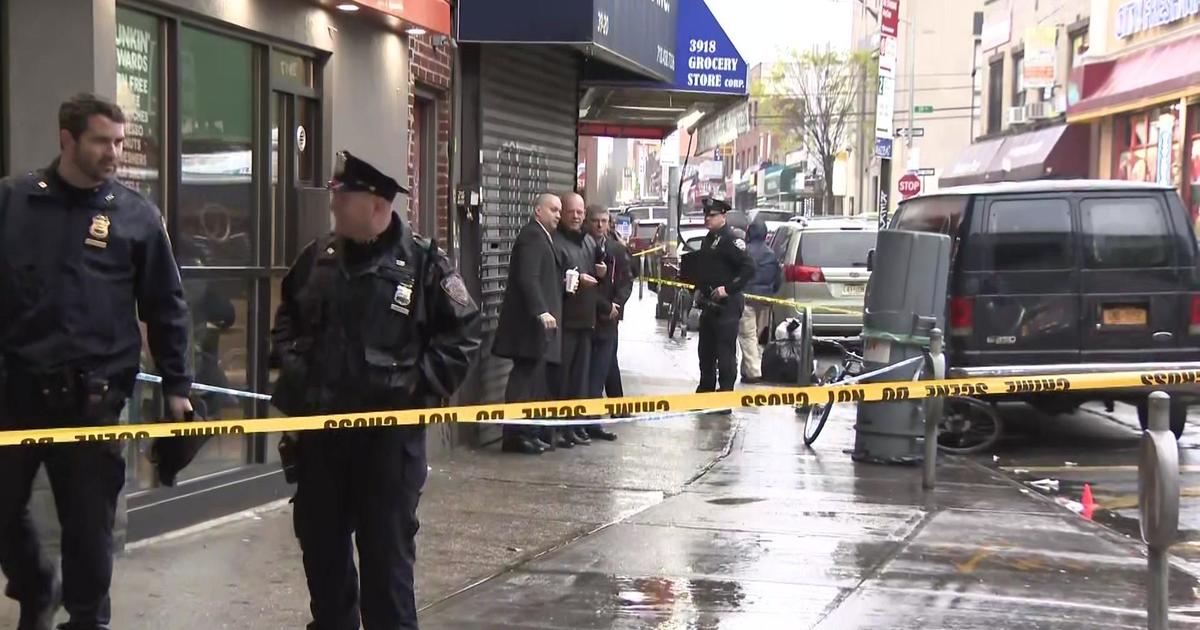NYPD To Stop Seizing Condoms From Suspected Sex Workers
NEW YORK (CBSNewYork/AP) -- The NYPD will no longer confiscate unused condoms from suspected sex workers to be used as evidence of prostitution, ending a longstanding practice that had been criticized by civil rights groups for undermining efforts to combat AIDS and other sexually transmitted infections.
Under the new policy announced Monday, officers may continue to seize condoms as evidence in sex-trafficking and promotion of prostitution cases, but they will not use them in support of prostitution cases. Critics had said the previous policy amounted to police harassment, and noted that New York City spends more than $1 million a year to distribute free condoms.
"The NYPD heard from community health advocates and took a serious look at making changes to our current policy as it relates to our broader public safety mission," Police Commissioner Bill Bratton said in announcing the new policy.
NYPD To Stop Seizing Condoms From Suspected Sex Workers
For decades, police in New York and elsewhere had confiscated condoms from sex work suspects ostensibly for them to be used as evidence in criminal trials, even though the overwhelming majority of prostitution cases never go to trial.
"I think it's the right thing to do," Mayor Bill de Blasio said Monday during an event in Queens, WCBS 880's Rich Lamb reported. "I applaud the NYPD, and I, last year, supported the legislation on a state level would achieve the same idea."
A 2010 study by the city's Department of Health surveyed more than 60 sex workers and found that more than half had condoms confiscated by police. Nearly a third said they had at times not carried condoms because they feared getting into trouble.
Two years later, the group Human Rights Watch interviewed 197 sex workers in New York, Washington, D.C., Los Angeles and San Francisco and found that many limited the number of condoms they carried or went without because they feared police attention. The report concluded that transgender teens, street-level sex workers and immigrants were especially targeted because of their appearance or behavior.
"A policy that inhibits people from safe sex is a mistake and dangerous," de Blasio said. "And there are a number of ways you can go about putting together evidence" without condoms, he said.
Prosecutors in Brooklyn and Long Island's Nassau County and in San Francisco decided last year to no longer use condoms as evidence in prostitution cases. Manhattan District Attorney Cyrus Vance applauded the NYPD's policy change.
"I have long believed that it is possible to address the use of condoms as evidence in misdemeanor prostitution-related cases without weakening our ability to prosecute serious crimes, like sex trafficking," he said. "I commend our partners in the NYPD for their policy change, which will enhance public health and help curb the spread of diseases."
Measures to formally abolish the practice across New York state have been introduced in the Legislature for nearly two decades and last year passed the Assembly. Similar legislation has been introduced in California.
The NYPD makes about 2,500 prostitution arrests a year.
One respondent in the Human Rights Watch study, Brooklyn sex worker Pam G., told the researchers she has had condoms taken by police.
"The cops say, 'What are you carrying all those condoms for? We could arrest you just for this,''' she said. "It happens all the time around here. I may be carrying eight condoms. If you have more than three or four, they will take them."
You May Also Be Interested In These Stories
(TM and © Copyright 2014 CBS Radio Inc. and its relevant subsidiaries. CBS RADIO and EYE Logo TM and Copyright 2014 CBS Broadcasting Inc. Used under license. All Rights Reserved. This material may not be published, broadcast, rewritten, or redistributed. The Associated Press contributed to this report.)



